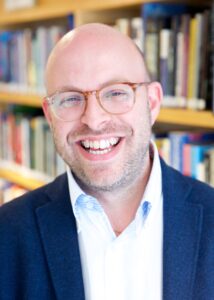
The Scots College will increase its research and innovative teaching methods with new the appointment of Director of Research and Learning Innovation, Dr Rob Loe, within the ScotsResearch Office.
Dr Loe is well known to Scots, and wider community, having been a past guest at ScotsIdeas, Leadership Summit, and various professional development events.
In this Q&A, Dr Loe gives us a glimpse into who he is, how his faith developed, and what he is looking forward to this year.
How have your life experiences brought you to this point?
Educated in East Anglia, I was the product of a fine boys’ school education and whilst an old English Grammar school established in 1541, the school in question was renowned as one of the best secondary schools in England in the 1990s. I was a student of the Arts there and went on to read a Bachelor’s Degree in English Literature and Education Studies at the University of Cambridge (Cambridge), graduating in 2001 with a Double First-Class Honours.
After a year of postgraduate study, I went on to teach English (Literature and Linguistics), Drama, and Film Studies as well as holding a number of leadership roles during that time including: Subject Faculty Head; Assistant Head of Senior School; and most recently, before my move to Australia, Assistant Principal of a large college in the East of England where I was Head of Teaching and Learning.
I lectured at both Cambridge and Anglia Ruskin Universities. Whilst mentoring and marking on the Master of Arts programs, I was drawn to academia again.
I left teaching in 2013 to pursue a research career and return to doctoral study in the social sciences (specifically the measurement and management of human relationships) at the Institute of Education (IOE) with the College of Teachers, now the Chartered College of Teaching. As a Christian, since my university days, I firmly believe we are only people with each other, that it is not good for us to be alone. It is my view that education should focus on the development of relational capability in our children and young people so they might learn to build and repair the communities and societies in which they will live, work and re-create.
How has your life narrative influenced your career?
That deeply held view came from my own struggles at schools with peer group relationships which deteriorated significantly in early adolescence to the point where I was considering leaving school at 16 and pursuing a vocational pathway in carpentry and joinery. But the intervention of caring staff and a very supportive home enabled me to start afresh; indeed, the person I sat next to in my new science class, was the very same person who would meet me on my first day in Cambridge, show me round the city, take me to his church (a Presbyterian church) and offer me wonderful hospitality in his halls of residence.
Reflecting on that time, it was clear that relationships were a source of both pain and anxiety in my early years but, simultaneously, the foundations of my academic success and personal and spiritual growth in early adulthood.
What is your passion?
Relationships matter because they lie at the heart of the way we all learn and are the heartbeat of early education and formation. Learning is not, primarily, an individual cognitive thing; it is a social thing, and it has enormous implications for how we view classroom environments.
You are unlikely to learn if you are frightened, if you are unhappy or if you feel you don’t belong. What’s more, you cannot hope that by adding an intervention, yet another activity to the ever-growing list of a teacher’s workload, you can make people feel engaged. Rather this is a radical change in mindset. You have to change everything.
What attracted you to this role?
The belief – that the way we think about education needs to be fundamentally challenged and redesigned – drew me to both the place and position at The Scots College.
Many speak of the need to rethink or reinvent education, but few schools have the kind of clarity of vision, or commitment of resources to that enterprise, as Scots. The role I will take up as Director of Research and Learning Innovation – a job couched in terms of invention or imagination – is as much about international best practice translation. We know more now, than we have ever done, about what works well in the classroom.
Encouraging greater consistency of outstanding practice across all areas of school life is itself a science of relation. What we learn from all high-performance cultures across sectors and internationally, is that change only ever occurs when individuals are nested into an interconnected web of outstanding people – that professional growth is the sum of group activity. You need the group, to change the group.
What is on the horizon for the Scots Research Office?
‘New’ is always a relative concept and that is very true in research, and specifically in education research.
There is no doubt that we will continue to engage in, and lead, the very best research in the sector and the world but, critically, we believe Scots will become a place where others will gather in the future to think and co-create as well as engage in best practice modelling and mastery.
We are becoming a centre of innovation, though I am reminded that the word innovation itself actually comes from the Latin ‘innovare’ meaning ‘to renew’. This for me is as much about the continued investment in, and revival of, our Christian education heritage and mission as it is about experimentation or invention. It is the thing that drew me to Scots after nearly three years working with Christian schools in Victoria and Tasmania.
Looking back to the very beginning of my time at a boys’ school in 1992, 30 years ago, I see now that all I have experienced and learned is converging in this moment. I am keen to begin!






